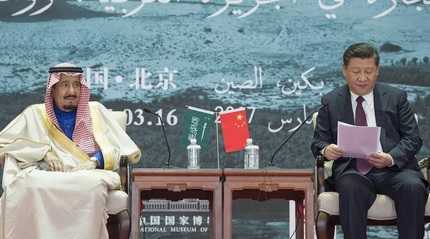
02 Nov 2022; MEMO: Saudi Arabia's decision to host Chinese President Xi Jinping is a "sovereign decision," the US State Department insisted on Monday.
"The point that we have made consistently over the course of this administration is that we are not asking countries around the world to choose between the United States and the [People's Republic of China]," department spokesman Ned Price told reporters. "We're not asking countries around the world to choose between the United States and any other country. Countries are going to make their own sovereign decisions about their foreign policy, about their relationships, about their partnerships and alliances."
America's goal, Price added, is to give countries around the world a choice. "And we want to make the choice of the United States and what we bring to the table the most attractive option available."
Saudi Foreign Minister Prince Faisal Bin Farhan announced last Thursday that Xi Jinping would visit the kingdom soon, but he did not specify a date. Speaking during a meeting of the China-Saudi Arabia joint committee, Bin Farhan stressed the strength of relations between Riyadh and Beijing, and said that they had achieved tangible results over the years.
"The kingdom gives priority to bilateral relations with China," explained the minister, "and always seeks to coordinate positions on issues of concern to the two countries."
READ: Saudi Arabia, China discuss strengthening mutual ties
The Guardian quoted Saudi sources in August as saying that the Chinese leader will receive a legendary reception, unlike the reception of US President Joe Biden in July.
This will be the first visit by Xi Jinping to the kingdom since 2016. The Chinese president's trip to the kingdom comes at a time of tension in US-Saudi relations over the decision of the OPEC+ alliance, led by Riyadh, to cut oil production.
According to one US TV network at the weekend, discussions have been held within the Biden administration to impose punitive measures on Saudi Arabia in response to the OPEC decision, including a reduction in military support.




